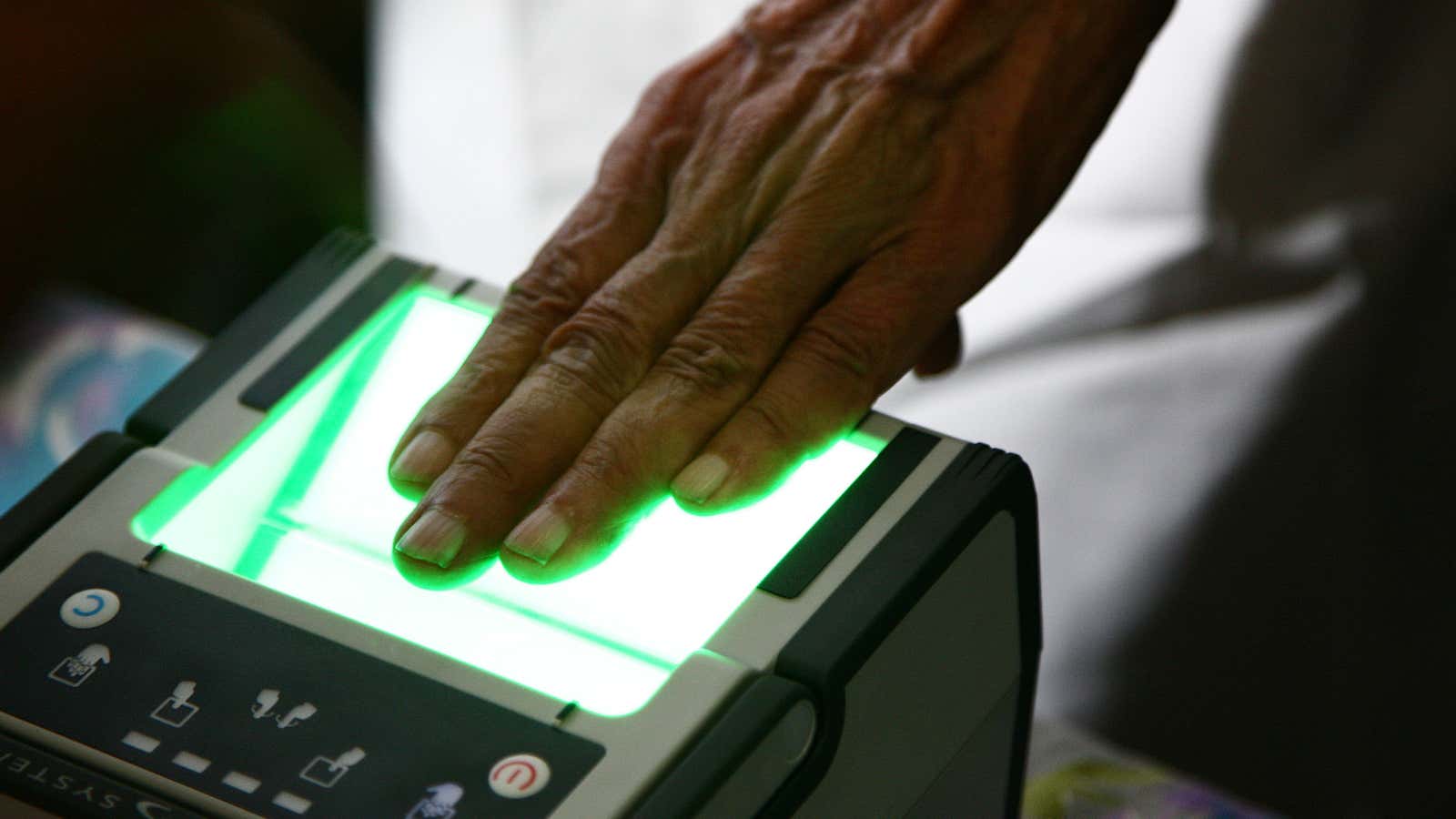In recent months, the debate over Aadhaar has reached a feverish pitch as the Narendra Modi government has pushed to make the 12-digit identification number mandatory for more and more schemes.
Critics have underlined privacy concerns and security flaws besides citing a bevy of data leak incidents that have exposed the identity information of millions of citizens. The government, on the other hand, has held that the biometrics-based platform has improved subsidy delivery and can potentially clean up other critical systems such as the permanent account number (PAN), which is used to file tax returns.
Eventually, it is up to India’s supreme court to take a call. But, despite Aadhaar having been challenged as early as 2012, India’s top court hasn’t yet settled the issue.
At a discussion organised by legal services organisation Software Freedom Law Centre in New Delhi on May 09, Shyam Divan, a senior advocate at the supreme court, attempted to explain the delay. Divan, one of the lawyers representing a clutch of petitioners challenging the Aadhaar platform in the supreme court, began by pointing out at that the apex court is currently functioning with fewer judges than the sanctioned strength of 31. These judges, he went on, are organised as per a roster determined by the chief justice of India (CJI), who heads the supreme court.
So far, there have been three chief justices, including the incumbent CJI justice Jagdish Singh Khehar, who had the opportunity to take a call on Aadhaar. Divan explained:
So we had chief justice Dattu who passed an order in October of 2015 saying that this is a very high priority case. (He) didn’t assign it to an adequately strong bench for his term. Then, we had a year-long tenure of chief justice Thakur, he didn’t do it. And now, it’s not likely that chief justice Khehar, until August or September, when he retires, is likely to do it either.
So there’s really nothing we can do in terms of expediting it, except going up before the chief justice and requesting him that, ‘Look, this is a priority.’
Among other things, the petitioners challenging the Aadhaar scheme have argued that the collection of biometric data (pdf) violates a citizen’s right to privacy, while the government has contended that the existence of the fundamental right to privacy is doubtful. Divan explained that the government’s line has created a situation where effectively only a bench of a certain size can decide on the matter:
…the manner in which the government has argued the matter is that you do not have a right to privacy because of certain observations made in a judgement rendered by eight judges. And this (the government’s) was an argument canvassed before three judges, and they felt at that time that ‘all right, we will kick it up, send it up to a panel of suitable strength.’ So basically if you want to overturn eight, you need nine. So the chief justice of India has to spare nine judges, and I think the present lot…the chief justices don’t think they have the personnel to spare.
Therefore, till the time the CJI can constitute a bench of the required strength, it is unlikely that the Aadhaar issue will be settled. In January this year, for instance, Divan requested the court to expedite the process of setting up a constitutional bench, i.e. consisting of at least five judges that decide on matters related to the interpretation of the Constitution of India. However, his plea was denied.
On May 09, another petition in the supreme court—this one challenging the mandatory linking of Aadhaar with a number of government schemes—was referred to a constitutional bench.
“So we were before a panel of two judges today and those two judges again kicked it up and said ‘Look, the matter is pending up before at least five (judges) and so we will request the chief justice of India that since many of these notifications are becoming mandatory from June 30 onwards, to try and help out over there,'” Divan explained.
“So that’s why we’re stuck in a rather difficult spot and the next endeavour is now going to be to try and get at least an interim directions heard before a panel of hopefully at least five (judges),” he added.
Until then, the Modi government, more or less, is free to introduce Aadhaar in even more schemes.
